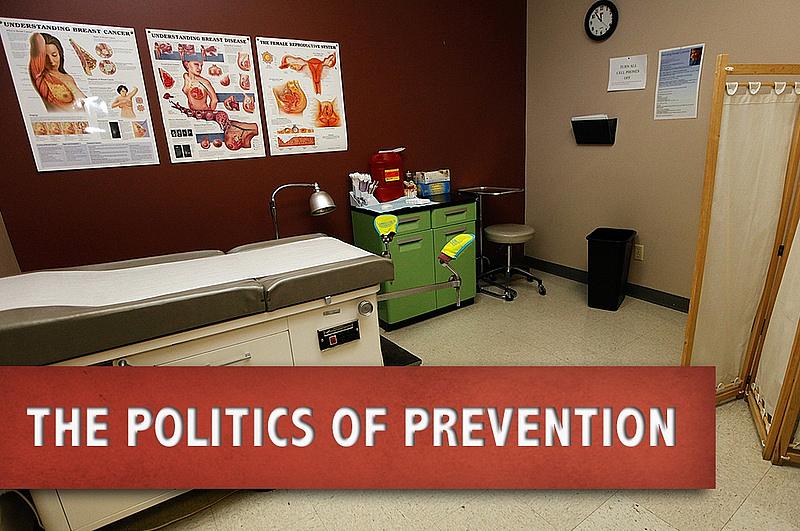Abortion Providers Plan to File Second Lawsuit
This story is part of an ongoing series that 2013 Dennis A. Hunt Fund for Health Journalism Grantee and National Health Journalism Fellow Becca Aaronson will write for the Texas Tribune on women's health care in the state. For a complete look at Aaronson's extensive coverage, click here.

Photo by: Stephen Spillman
Less than a week after a federal court upheld two new Texas abortion requirements already in effect, abortion providers announced plans to file a second lawsuit targeting additional regulations that the Republican-led Legislature passed in July.
The suit that the group plans to file Wednesday in a federal court seeks a court order to block the regulations — which take effect in September — that require abortion facilities to meet the same structural standards as ambulatory surgical centers.
The new abortion regulations have been blamed for the closure of about a dozen abortion clinics in the state, which currently has 24 active abortion clinics. The upcoming lawsuit alleges that unless the remaining clinics rebuild from the ground up and become essentially mini-hospitals, most could shutter. That would leave fewer than 10 facilities.
“There is no question that the politicians who passed this law intended this as the final blow in their assault on women’s constitutional right and ability to safely and legally end a pregnancy in Texas,” said Nancy Northup, president and CEO of the Center for Reproductive Rights, which is representing several abortion providers in the suit.
Legislators who backed the regulations and abortion opponents said that the rules are intended to protect women's health and that there isn’t enough evidence to suggest the rules create an undue burden on the majority of Texas women attempting to access abortion.
Last week, the 5th U.S. Circuit Court of Appeals found that the state's "articulation of rational legislative objectives, which was backed by evidence placed before the state legislature, easily supplied a connection between the admitting-privileges rule and the desirable protection of abortion patients’ health." The three-judge panel unanimously ruled that the hospital-admitting privileges requirement, which took effect in November, was constitutional because the Legislature’s objective was to protect women’s health and that there wasn’t enough evidence to suggest that the majority of Texas women attempting to access abortion now face an undue burden.
The 5th Circuit also upheld a rule requiring doctors to follow an FDA regimen, rather than a commonly used evidence-based protocol, for drug-induced abortions. Another provision that took effect in November, a ban on abortions after 20 weeks of gestation, remains unchallenged.
There are currently six ambulatory surgical centers that perform abortions in Texas located in major cities: Austin, Dallas, Houston, Fort Worth and San Antonio.
The remaining 22 licensed abortion providers in the state — only 18 of which still perform the procedure — must upgrade their facilities to meet ambulatory surgical center requirements and continue performing abortions. Those requirements include specific sizes for rooms and doorways, locker rooms, additional infrastructure like pipelines for general anesthesia, and large sterilization equipment.
Planned Parenthood has announced plans to open a seventh facility in San Antonio, and the Department of State Health Services has said that it's aware of three ambulatory surgical facilities that abortion providers plan to open in Dallas, San Antonio and Houston by September.
(Use this Texas Tribune interactive to see the impact of the abortion regulations on the number of abortion facilities in Texas.)
The Department of State Health Services wrote that the state's intention with the rules is to protect patients’ well-being by improving safety standards at women’s health at facilities that perform abortions.
But opponents of the regulations argue that the requirement would have an immediate and devastating impact on women’s access to abortion services. If the remaining clinics are unable to meet the new regulations, women living west or south of San Antonio will be left without a nearby abortion clinic, requiring them to travel more than 1,000 miles to obtain the procedure, the group’s press release says.
Texas’ history could prove that an increased number of women could end up traveling out of state for an abortion if access to abortion providers decreases.
A decade ago, Texas began enforcing a requirement that abortions after 16 weeks of gestation be performed in an ambulatory surgical center. At the time, none of the state’s abortion providers met those standards.
While a study by the National Bureau of Economic Research found that the number of abortions performed at 16 weeks of gestation or later dropped from 3,642 in 2003 to 446 in 2004, the number of Texas women who left the state for a late-term abortion almost quadrupled.
Abortions at ambulatory surgical centers can also come with a heftier price tag for women. Because ambulatory surgical centers cost more to build and operate than abortion clinics, the costs of procedures performed in those facilities are also more expensive.
For example, Whole Woman’s Health told the Tribune in March 2013 that it spends $40,000 more each month to operate its surgical center in San Antonio than it does for an abortion clinic, and patients pay $1,277 for an abortion at the surgical center compared to $540 at a clinic.
